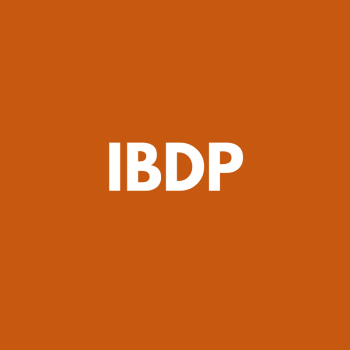1. Why Study IBDP Global Politics?
A Path to Understanding Power and Governance
IBDP Global Politics is a multidisciplinary course that explores fundamental political concepts such as power, human rights, sovereignty, and peace. It fosters critical thinking and analytical skills, enabling students to understand and engage with complex political issues on local, national, and global levels.
Key Benefits of Studying IBDP Global Politics
- Interdisciplinary Scope: Combines political science, economics, history, and philosophy.
- Global Perspective: Examines real-world case studies and political systems worldwide.
- Critical Skills: Develops analytical thinking, argumentation, and research abilities.
- Future-Ready: Prepares students for careers in diplomacy, law, international relations, journalism, and more.
Skills Developed
- Critical analysis of political concepts and systems.
- Research and data evaluation.
- Structured debate and effective communication.
- Ethical consideration of political decisions and their impacts.
2. Core Structure of the IBDP Global Politics Curriculum
The curriculum is divided into core topics and extension options, tailored to students’ levels and interests.
Core Units (Applicable to Both SL and HL)
- Power, Sovereignty, and International Relations
- Exploration of global actors such as states, IGOs, NGOs, and MNCs.
- Concepts of soft power, hard power, and sovereignty.
- Human Rights
- Examination of universal human rights, cultural relativism, and humanitarian intervention.
- Role of international treaties and organizations in safeguarding rights.
- Development
- Analysis of economic, social, and political factors influencing development.
- Case studies on poverty alleviation and sustainable development.
- Peace and Conflict
- Study of peacebuilding, conflict resolution, and post-conflict reconstruction.
- Insight into root causes and consequences of conflicts worldwide.
Higher-Level (HL) Extension Topics
- Global Political Challenges
- Analysis of two contemporary global political challenges, such as terrorism or environmental governance.
- Requires in-depth research and critical evaluation.
Key Terminology Explored
- Sovereignty
- Globalization
- Justice
- Equality
- Sustainability
- Liberty
3. Comparing SL and HL in IBDP Global Politics
SL Overview
- Focus on core units only.
- Approximately 150 hours of instruction.
- Includes an engagement activity requiring reflection on personal political involvement.
HL Overview
- Covers core units with additional emphasis on extension topics.
- Approximately 240 hours of instruction.
- Includes an in-depth case study of two global political challenges.
Key Differences
| Aspect | SL | HL |
| Depth of Content | Core topics with foundational depth. | Advanced exploration of challenges. |
| Engagement Activity | Reflective activity required. | Greater emphasis on critical research. |
| Additional Requirements | None | Researching two global challenges. |
4. Assessment Overview and Marking Scheme
Internal Assessment: Engagement Activity
- Weightage: 25% (SL), 20% (HL)
- Objective: Evaluate political concepts in real-world contexts.
- Structure:
- A written report of 2,000 words reflecting on a political issue experienced first-hand.
- Demonstrates personal engagement, analysis, and critical reflection.
External Assessments
- Paper 1 (30% SL, 20% HL)
- Structured questions based on case studies.
- Tests understanding of core topics.
- Paper 2 (45% SL, 40% HL)
- Essay-style questions requiring analysis and evaluation of political concepts.
- HL Extension Assessment (20% HL Only)
- Research presentation of two global political challenges.
- Assesses research skills, critical analysis, and communication.
Marking Scheme Insights
| Component | Marks | Weightage |
| Paper 1 | 25 | 20-30% |
| Paper 2 | 50 | 40-45% |
| Engagement Activity | 25 | 20-25% |
| HL Global Challenges | 20 | 20% (HL Only) |
5. The Engagement Activity: Bridging Theory and Practice
The engagement activity offers students a hands-on opportunity to connect theoretical concepts with real-world political issues.
Examples of Engagement Activities
- Attending and analyzing a local government meeting.
- Volunteering with an advocacy group or NGO.
- Organizing a campaign or participating in political debates.
Tips for a High-Scoring Engagement Activity
- Choose a Meaningful Topic: Align your activity with an issue of global or local relevance.
- Reflect Deeply: Analyze how your involvement connects to political theories and concepts.
- Structure Your Report:
- Introduction: Outline your activity and its relevance.
- Analysis: Apply political concepts to your observations.
- Reflection: Evaluate the activity’s impact on your understanding.
6. Recent Updates to the IBDP Global Politics Curriculum
Curriculum Enhancements
- Technology and Politics: Increased focus on the role of digital media and cybersecurity.
- Intersectionality: Inclusion of gender, race, and class analyses in political contexts.
- Contemporary Relevance: More emphasis on climate change and global inequality.
7. Career Opportunities with IBDP Global Politics
University Pathways
- Political Science: Prepares students for advanced study in governance and policy-making.
- International Relations: Focuses on diplomacy, trade, and global cooperation.
- Law: Provides foundational skills for legal studies and advocacy.
Job Prospects
- Diplomat or International Relations Specialist.
- Policy Analyst or Political Consultant.
- Human Rights Advocate or NGO Coordinator.
8. Excelling in IBDP Global Politics
Study Strategies
- Master the Key Concepts: Focus on core units like sovereignty and development.
- Engage with Case Studies: Analyze real-world examples to deepen understanding.
- Practice Essay Writing: Develop structured arguments supported by evidence.
Time Management Tips
- Allocate dedicated hours for research and essay practice.
- Use study groups for discussion and critical analysis.
9. Top Resources for IBDP Global Politics
Books and Study Guides
- Oxford IB Diploma Programme Global Politics: Comprehensive guide aligned with the syllabus.
- Cambridge Resources for Global Politics: In-depth analysis and case studies.
- Key Concepts in Politics and International Relations: Supplemental reading for advanced insights.
Online Platforms
- Global Politics Review: Articles and essays by subject experts.
- Kognity: Interactive platform with practice questions and summaries.
Interactive Tools
- UN Resources: Reports and statistics on global political issues. Visit UN Resources
- World Bank Data: Economic and political development indicators. Explore World Bank Data
10. FAQs: Clearing Common Doubts
Q1. What is the difference between SL and HL in Global Politics?
SL focuses on core topics, while HL includes advanced global political challenges and additional assessments.
Q2. How can I score well in the Engagement Activity?
Choose a meaningful political issue, deeply analyze it using relevant theories, and structure your report clearly.
Q3. What are some examples of global political challenges?
Climate change, terrorism, digital surveillance, and global inequality.
Q4. How important are case studies in Global Politics?
Case studies are crucial for understanding real-world applications of political concepts and scoring well in essays.
Q5. What skills does this course develop?
Critical thinking, research, communication, and ethical decision-making.
Q6. Can I switch from SL to HL midway?
Yes, but consult your teacher and ensure you are prepared for the additional workload.
Q7. How should I approach essay questions in Paper 2?
Structure your essays with a clear introduction, evidence-backed arguments, and a strong conclusion.
Q8. Are there any prerequisites for IBDP Global Politics?
No specific prerequisites, but an interest in current affairs and global issues is beneficial.
Q9. What tools or resources are allowed during assessments?
Ensure adherence to IB guidelines; generally, only pens and approved notes for specific tasks.
Q10. How does this course prepare me for a career in politics?
It builds foundational knowledge of political systems, critical thinking, and analytical skills essential for governance and policy-making careers.
Conclusion
IBDP Global Politics equips students with the tools to understand and address the complexities of power and governance. With its engaging curriculum, hands-on assessments, and global focus, this course paves the way for impactful careers in politics, law, and international relations.

